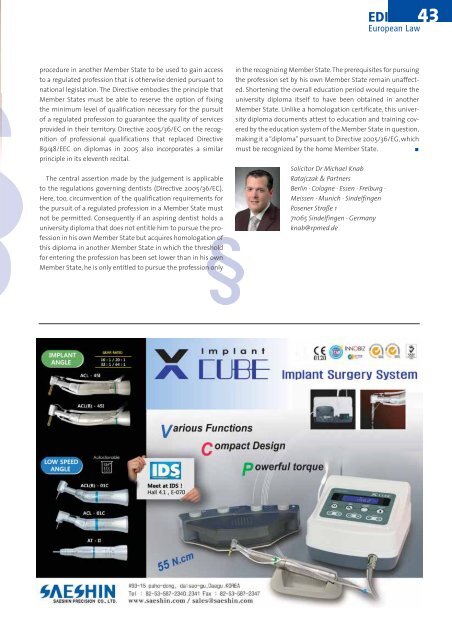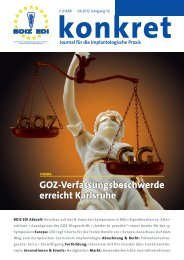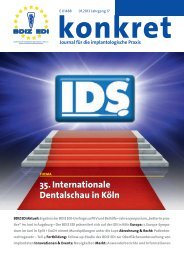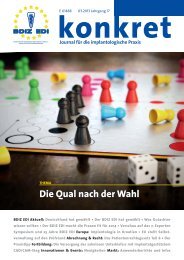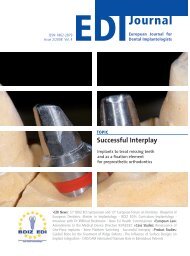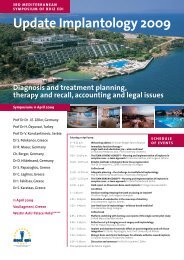Editorial_lay:Layout 1 - BDIZ EDI
Editorial_lay:Layout 1 - BDIZ EDI
Editorial_lay:Layout 1 - BDIZ EDI
You also want an ePaper? Increase the reach of your titles
YUMPU automatically turns print PDFs into web optimized ePapers that Google loves.
procedure in another Member State to be used to gain access<br />
to a regulated profession that is otherwise denied pursuant to<br />
national legislation. The Directive embodies the principle that<br />
Member States must be able to reserve the option of fixing<br />
the minimum level of qualification necessary for the pursuit<br />
of a regulated profession to guarantee the quality of services<br />
provided in their territory. Directive 2005/36/EC on the recognition<br />
of professional qualifications that replaced Directive<br />
89/48/EEC on diplomas in 2005 also incorporates a similar<br />
principle in its eleventh recital.<br />
The central assertion made by the judgement is applicable<br />
to the regulations governing dentists (Directive 2005/36/EC).<br />
Here, too, circumvention of the qualification requirements for<br />
the pursuit of a regulated profession in a Member State must<br />
not be permitted. Consequently if an aspiring dentist holds a<br />
university diploma that does not entitle him to pursue the profession<br />
in his own Member State but acquires homologation of<br />
this diploma in another Member State in which the threshold<br />
for entering the profession has been set lower than in his own<br />
Member State, he is only entitled to pursue the profession only<br />
<strong>EDI</strong> 43<br />
European Law<br />
in the recognizing Member State. The prerequisites for pursuing<br />
the profession set by his own Member State remain unaffected.<br />
Shortening the overall education period would require the<br />
university diploma itself to have been obtained in another<br />
Member State. Unlike a homologation certificate, this university<br />
diploma documents attest to education and training covered<br />
by the education system of the Member State in question,<br />
making it a “diploma” pursuant to Directive 2005/36/EG, which<br />
must be recognized by the home Member State.<br />
Solicitor Dr Michael Knab<br />
Ratajczak & Partners<br />
Berlin · Cologne · Essen · Freiburg ·<br />
Meissen · Munich · Sindelfingen<br />
Posener Straße 1<br />
71065 Sindelfingen · Germany<br />
knab@rpmed.de


